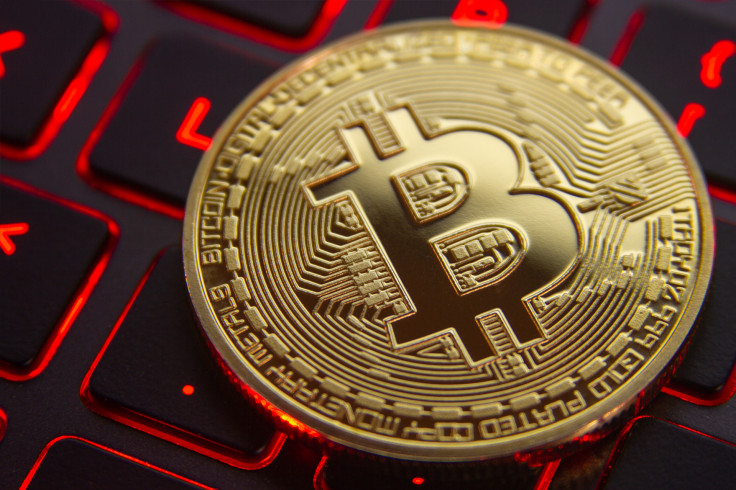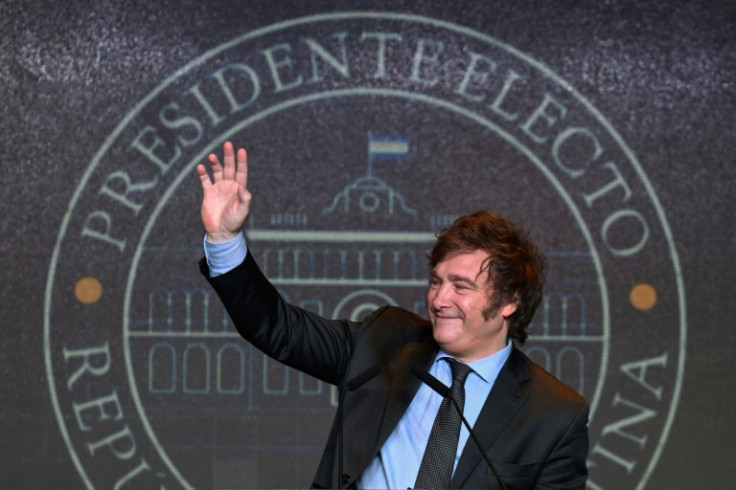
The crypto ecosystem, fueled by Bitcoin's surge to over $40,000 in early December, is cautiously waiting for the initial economic measures taken by Javier Milei, Argentina's new President, libertarian economist. Milei took office on Sunday as the country grapples with an annual inflation rate of 142% and elevated poverty levels, which affects 56% of children according to the latest official statistics.
He has promised to drastically reduce state intervention by easing regulatory constraints on the private sector- an idea that resonates with many of his libertarian followers and the broader crypto world.
Argentinians hold around 10% of the total USD cash in circulation, and many transactions, such as real estate purchases, are informally conducted in this currency. As the government imposed strict limits on purchasing dollars for savings, stablecoins like Tether's USDT have emerged as favored alternatives for Argentines who want to change their pesos for a more stable currency.
Up until now, Milei's stance on Bitcoin as a means of storing value for the citizens has been largely neutral. However, he has distanced himself from national programs such as the one in El Salvador. Milei leans towards dollarization as a solution to address inflation.
In an interview with The Latin Times, Argentine Santiago Siri, one of the country's early crypto advocates, explained that the South American country "currently has one of the highest crypto penetration rates in the world, along with Turkey, another country with high inflation."

"Approximately one in four Argentines have used or currently use cryptocurrencies. Therefore, Argentina's inflationary context has led to widespread adoption of this technology. There are $500 million worth of transaction in crypto every month in Argentina, that is $6 billion per year. It amounts to 1% of the country's Gross Domestic Product (GDP) and surely the number will grow as the years go by."
Siri, a 39-year-old programmer, is the president of the Democracy Earth Foundation, which operates open-source and free software designed for conducting votes using Ethereum technology. He also leads the Universal Basic Income (UBI) cryptocurrency, providing holders with a fixed income solely for validating their identity.
He is the author of 'Hacktivismo,' published by Random House in 2015, and hosts the Spanish-language technology podcast La Ultima Frontera.
In a recent post on X, Siri stated: "Adopting Bitcoin is equivalent to economic emancipation and strengthens (the country's) finances. The libertarian president (Milei) has the most suitable tool in line with his creed right in front of him, yet he ignores it. It would be imperative to open his eyes."
el gobierno dolarizador del “no hay plata” puede toparse con las provincias viéndose forzadas a imprimir cuasi monedas para cumplir sus obligaciones más pronto que tarde.
— santi (@santisiri) December 10, 2023
bitcoin a precios actuales representa una oportunidad enorme para los estados-nacion que quieran dar un… pic.twitter.com/RdN1urgKkU
-Why do you think so?
First and foremost, Bitcoin represents an alternative economic system to that of the International Monetary Fund and the U.S. dollar or petrodollar. Therefore, positioning Argentina economically within an ecosystem like Bitcoin would be an act of sovereignty. To begin with, Bitcoin has a higher value than Argentina's GDP, with more money flowing in Bitcoin than in the country. I believe that large nations, such as our G20 country, have much to gain in the 21st century by adopting a pro-Bitcoin policy. At a global level, the U.S. dollar is severely questioned given its intrinsic crises and I think Bitcoin has an immense future ahead. Thus, positioning the country in this sector seems to me to be a very bold move. The President of El Salvador has set a fairly positive precedent with current Bitcoin numbers, but I believe Argentina, as one of the countries with the highest level of talent, development, and production of these systems, has much to gain.
- What about the volatility of cryptocurrencies for a country's store of value?
My advice has always been to allocate 1% of reserves to Bitcoin, not 90%, which is a sensible way to moderate the high volatility to which the asset is subject. However, if you look at the long term, rather than short-term periods, the trend of Bitcoin has always been bullish. Its monetary policy of halving its issuance every 4 years, the supply shock inherent in Bitcoin's algorithm every 4 years, has proven to be a fairly powerful deflationary policy in terms of the asset's appreciation. So I believe that looking at Bitcoin as digital gold and as a long-term store of value is not a high-risk proposition today. On the contrary, it seems to me that gold is riskier than Bitcoin, and in that sense, Argentina could easily start leading this area at a global level.

- How do you think Argentina could do it? Would it be similar to the model in El Salvador under Bukele?
One of the most immediate ways is by purchasing Bitcoin with Central Bank reserves and holding it for the long term. That is something that could be done and now is particularly a good time to do so. The other strategy is to leverage the natural resources we have. Argentina has the Vaca Muerta oil and gas field, nuclear plants and various energy sources that can contribute to Bitcoin mining. I find the Vaca Muerta approach particularly interesting as it allows for the use of vent gas, which is otherwise wasted, to supply local energy to containers with mining rigs. This way, the country can directly build reserves using surplus energy from Vaca Muerta that would otherwise go unused.
- Do you see alternatives to the adoption of bitcoin in other cryptocurrencies or in the design of national cryptos?
I believe one could obviously diversify into other cryptocurrencies like Ether and others, but Bitcoin has the best connection to the country's infrastructure and energy grid, or any country's for that matter. Eventually, one can consider the development of a cryptocurrency or digital currency that allows the country to also have a medium of exchange backed by Bitcoin as collateral. This would leverage the energy capacity as a collateralization instrument to strengthen and create a currency that is competitive on a global level. This could be done as a second stage after an initial phase where Bitcoin is adopted at a national or state level.
"Dollarizing is Definitely losing Sovereignty"

- Do you think dollarization is still a positive alternative to the peso or do you believe choosing this option is a mistake?
I believe we need to closely examine the experience of convertibility in the 1990s, where, in the end, you end up replacing the country's central bank with that of another country. The dollar itself doesn't seem like (the best) currency to me; even Americans don't hoard dollars. They invest in stocks, properties and various assets, but no one hoards dollars for the long term. The dollar itself is an inflationary instrument, with an inflation rate in recent years ranging between 8% and 10% annually. If you look from 1971 onwards, when it lost its peg to gold, the dollar has systematically lost value. Beyond that, I also think it's losing sovereignty if Argentina is not able to have its own currency and use it to implement policies that are more in line with our country's interests. We shouldn't be subjects to a foreign economy that can easily manipulate and influence the fate of our own country with its own currency. Dollarizing is definitely a loss of sovereignty.
- What are your expectations for the new government under Javier Milei?
I always try to have positive expectations about a new government. Milei seems to be in the position he holds primarily because of his attributes as an economist. Undoubtedly, his emphasis on rationalizing the economy, optimizing the variables of the country's economic functioning, suggests he is qualified for that role. I don't think he is in that position for attributes other than strictly economic ones. If Javier Milei's government aligns with a conservative agenda, more associated with far-right discourse, I believe the ideological stance of this government won't be very appealing. However, regarding the economic aspect, I hope he can make the necessary transformations that the country needs to correct its economic course with pragmatism and as little dogmatism as possible. Because, in the end, as he gets closer to power, much of his more radical preaching has started to moderate, and well, we'll see how things progress in the coming days.
© 2025 Latin Times. All rights reserved. Do not reproduce without permission.





